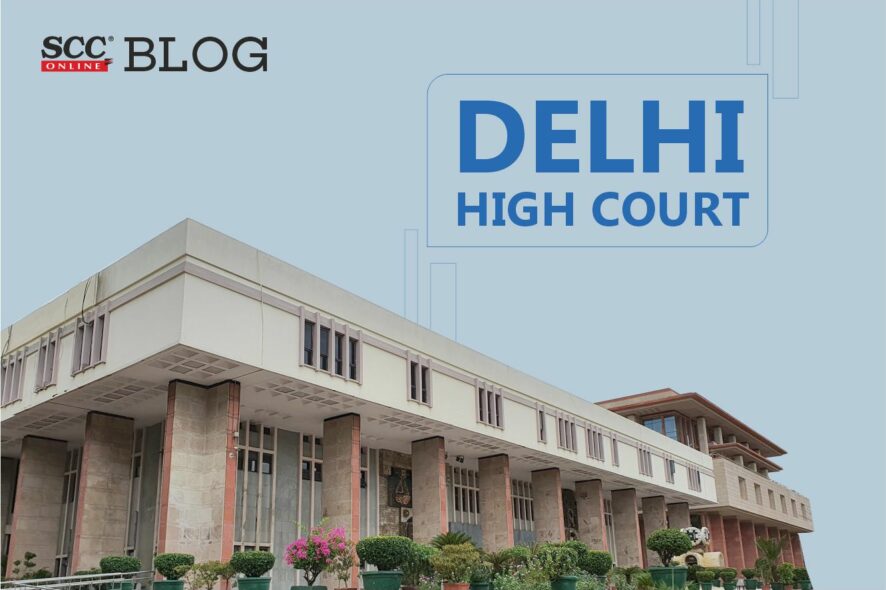Delhi High Court: In a case filed by Loreal India Private Limited (petitioner) challenging the order dated 23-06-2022 passed by National Anti-Profiteering Authority (Respondent 2) and the notice dated 01-06-2022 seeking to examining whether there is any profiteering or not, also challenging Section 171 of Central Goods and Services Tax Act, 2017, (CGST Act), Chapter XV of the Central Goods and Services Tax Rules, 2017, (CGST Rules) more particularly, Rules 126, 127 & 133 of the CGST Rules as unconstitutional, ultra vires and violative of Articles 14, 19(1)(g), 265 & 300-A of the Constitution of India, a Division Bench of Manmohan and Dinesh Kumar Sharma, JJ., held that a supplier cannot claim that he has passed on more benefit to one customer therefore he could pass less or no benefit to another customer than the benefit which is actually due to that customer as under Section 171 CGST Act, any benefit of reduction in rate of taxes or benefit of input tax credit on any supply of goods or services can only be by way of commensurate reduction in prices.
Counsel for petitioner submitted that the National Anti-Profiteering Authority (NAA) has no suo moto powers and therefore, the application filed by the Secretary, NAA, to the Standing Committee seeking initiation of proceedings under Section 171 CGST Act, is not a valid initiation of proceedings against the petitioner for examining whether there is any profiteering or not.
The petitioner further submitted that even though in some products they have not been able to grant commensurate reduction in prices, yet they have tried to pass on the benefit by way of increase in grammage of the product.
NAA further submitted that the petitioner was only required to pass on the benefit of tax reduction by not increasing his base prices which he has not done and has instead increased them as well as also compelled them to pay additional GST on these excess base prices which they should not have paid.
The Court noted that Section 171 CGST Act is not a charging or a taxing provision, rather an incidental provision for the purpose of eliminating the cascading effect of taxation on the consumer and any benefit of rate reduction of taxes or input tax credit benefit being passed on to the recipient without the middleman taking advantage of the Governments forgoing their taxes for the end consumer, and thus, is in the nature of a consumer welfare provision and must be liberally construed directed towards furthering consumer and public interest.
Further, Rule 128 of CGST Rules, 2017 nowhere prescribes that the applicant who is making the written application/complaint must also be the recipient of the goods or services, on which commensurate reduction in prices have not taken place. Thus, the Secretary, NAA, would qualify to make an application under Rule 128 CGST Act, which permits ‘any other person’ to make such an application.
The Court also noted that Section 171 of CGST Act, 2017 casts an obligation of every supplier of goods and services/registered person to pass on the benefit of rate reduction of GST or the benefit of ITC on every supply and not on some supplies. Thus, a supplier cannot claim that he has passed on more benefit to one customer therefore he could pass less or no benefit to another customer than the benefit which is actually due to that customer.
The Court remarked that when a statute clearly provides for a manner in which something is to be done, and a duty is cast upon the supplier to extend the benefit of rate reduction by way of commensurate reduction in prices, the supplier cannot insist that instead of reducing prices, he will give extra grammage of the product.
The Court held that under Section 171 of CGST Act any benefit of reduction in rate of taxes or benefit of input tax credit on any supply of goods or services can only be by way of commensurate reduction in prices and thus, the post-sale discount does not qualify as commensurate reduction in prices.
The Court further directed the petitioner to deposit the principal profiteered amount after deducting the GST imposed on the net profiteered amount which has already been deposited by the petitioner with the Department in six equated installments commencing 10-10-2022.
[Loreal India Private Limited v. Union of India, 2022 SCC OnLine Del 3281, decided on 06-10-2022]
Advocates who appeared in this case:
Mr. Mukul Rohatgi, Sr. Advocate with Mr. V. Lakshmikumaran, Mr. Karan Sachdev and Mr. Agrim Arora, Advocates, for the Petitioner;
Ms. Uma Prasuna Bachu, Advocate, for the R-1;
Mr. Zoheb Hossain, Sr. Standing Counsel for the Revenue with Mr. Vivek Gurnani and Ms. Niharika Kuchhal, Advocates, for the R-2, 3 & 4/NAA and DGAP.
*Arunima Bose, Editorial Assistant has put this report together.



